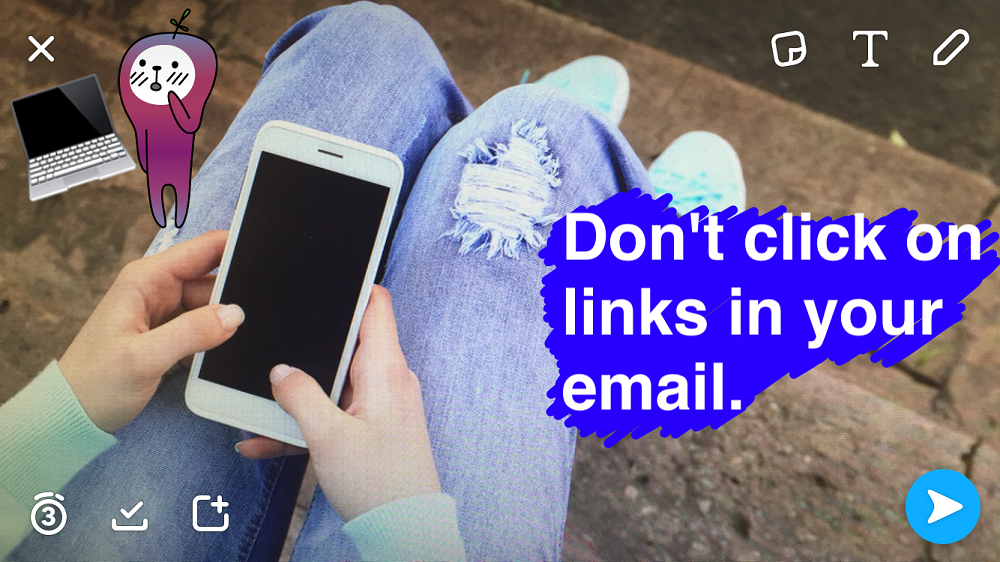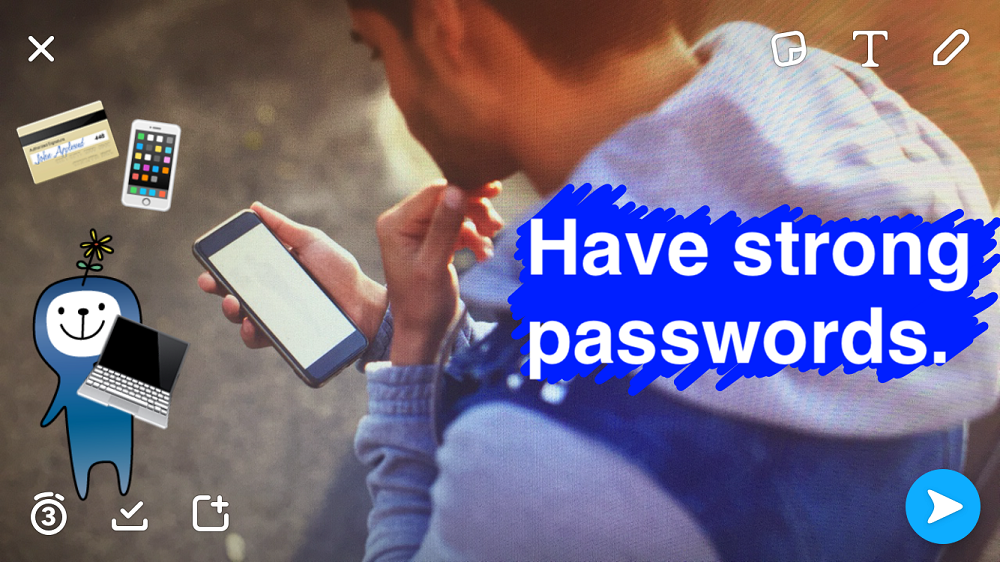Ways to Protect Yourself from Identity Theft
Join our weekly #CreditChat on Periscope, YouTube Live, Twitter, and Snapchat every Wednesday at 3 p.m. ET. This week, we talked about ways to protect ourselves from identity theft.
Our featured Twitter Guest: Stop Fraud Colorado
The video panel included: Jan Zavislan, Senior Counsel of Consumer Protection at the Colorado Office of the Attorney General; Shannon McNay: Director of Content at MyBankTracker; Rod Griffin: Director of Public Education at Experian; Mike Delgado: Director of Social Media at Experian.
We also featured financial tips all week on Snapchat — including 5 Smart Ways to Avoid Identity Theft:
Some stats about identity theft:
- FTC reported a 47% increase in ID theft last year – USA Today
- $15 billion was stolen from 13.1 million U.S. consumers in ID theft schemes last year – iii.org
- Over 490K identity theft complaints were reported to FTC last year – USA Today
- In the past 6 years, identity thieves have stolen $112 billion – iii.org
- Debt collection, identity theft & imposter scams are among top complaints to FTC – FTC
- Top states for cybercrime: CA (12%), Florida (7.5%), Texas (6.8%), New York (5.8%) – iii.org
- Gov benefits fraud is a top way ID theft victim’s info is misused – iii.org
9 Ways to Protect Yourself from Identity Theft & Fraud
1. Don’t access financial information or shop online using public wifi (or unsecured network)
When logged-in to public wifi, hackers have the ability gather your data. It’s almost like they are looking over your shoulder. This is why it’s important for you to avoid using financial apps or making any payment transactions when on public wifi or any unsecured network.

2. Don’t give out your social security number or any financial information to people calling, emailing, or texting you.
Unfortunately, there are a lot of thieves trying to gather your financial information from you pretending to be a charity, debt collector, bank, government agency, or even family member. There are even some people pretending to be a business trying to award you a financial prize in return for some of your personal info.
As a rule of thumb, never provide your financial information to anyone who contacts you. You can research the companies online to get the real phone number — or find out if it’s a scam by typing in the business name along with words like: complaints, reviews, scams, etc.

3. Get your credit report regularly to ensure all the data is accurate and that nobody has opened up accounts under your name.
Make sure to check each of your credit reports at least yearly. You can get your Experian, Transunion, and Equifax credit reports for free at AnnualCreditReport.com.
If possible, pull one report every four months so that you’re looking at your reports throughout the year. If you notice a problem, make sure to dispute it with the lender and the bureau. At Experian, you can dispute credit reports online.

4. Shred any mail or documents that have personal information (e.g. financial info, health docs) instead of just tossing in trash.
One of the simplest ways to prevent identity theft is using a shredder. Cut up old credit cards and any documentation that has personal info about you or family members that could be used by identity thieves.

5. Don’t carry your social security card in your wallet (and have a list of every card in your wallet in case it gets stolen).
It’s easy to lose a wallet, which is why it’s crucial that you have a complete list of every card in your wallet. The list should have phone numbers so that you can easily call each company to let them know your cards are missing. It’s also important that you always keep your social security card in a safe place (and not in your wallet).
Also make sure that you only carry cards with you that you actually need daily. Do you really need two credit cards in your wallet? Minimizing the number of financial cards in your wallet will alleviate your stress if your wallet is ever stolen or missing.

6. Don’t click on that link in your email to avoid malware, computer viruses, or hackers gathering your data.
It’s really difficult to avoid clicking on links in email — especially ones from friends or emails that appear to come from your bank asking you to reset your password for security purposes. To protect yourself, it’s always best to do searches yourself on Google to find the same site — instead of clicking on a hyperlink that might misdirect you somewhere else.
Even if you roll over the link with your mouse — and the destination URL looks legitimate — it’s safer to search for the content yourself. It takes extra time, but safer.

7. Use trusted sites when shopping online
Use reputable websites when shopping online to protect your credit card when making a transaction. You want to make sure your payment is protected and not intercepted by thieves. Some reputable payment services like PayPal, Google Checkout, or Apple Pay.

8. Create strong passwords (and change regularly).
It’s easy to get into the habit of using the same passwords on every website, but this strategy can get you into trouble if one of those sites gets breached — or you accidentally use that password on an unsecured network. It’s always best to use unique passwords — and passwords that are strong (using numbers, symbols, uppercase and lowercase letters).

9. Be careful about what personal information you share online (e.g. social networks).
It’s easy to over-share on social networks — so be very careful about posting personal data that could be used by identity thieves. Posting a new drivers license, credit card, or your baby’s social security card can only lead to trouble. And turning on geolocation tags on your social posts can lead identity thieves to discover where you live.
If you think you are victim of identity theft, IdentityTheft.gov can guide you through the action steps to take right away. The FTC provides this helpful pdf on “What to Do Right Away” if you are a victim.

Questions We Discussed:
- Q1: How does identity theft happen? Any common ways?
- Q2: What are some ways thieves try to get your financial info by phone calls?
- Q3: What types of online scams are used to get your data?
- Q4: How can we protect ourselves from ID theft when using public wifi?
- Q5: What tips do you have for creating strong passwords for websites?
- Q6: How does medical identity theft happen? How do we know if we’re victims?
- Q7: What are ways we can protect our children from identity theft?
- Q8: What should you do if you think you’re a victim of identity theft?
- Q9: What’s the difference between a credit freeze and fraud alert? What’s better?
- Q10: Any final tips to help protect us from identity theft?
View the Entire Discussion via Storify:
Join our #CreditChat every Wednesday at 3p.m. ET on Twitter and Google Hangouts.
If you’ve never heard about #CreditChat, here is a brief overview:
Resources:
How to Do What Identity Theft Protection Companies Do…For FREE via Wisebread